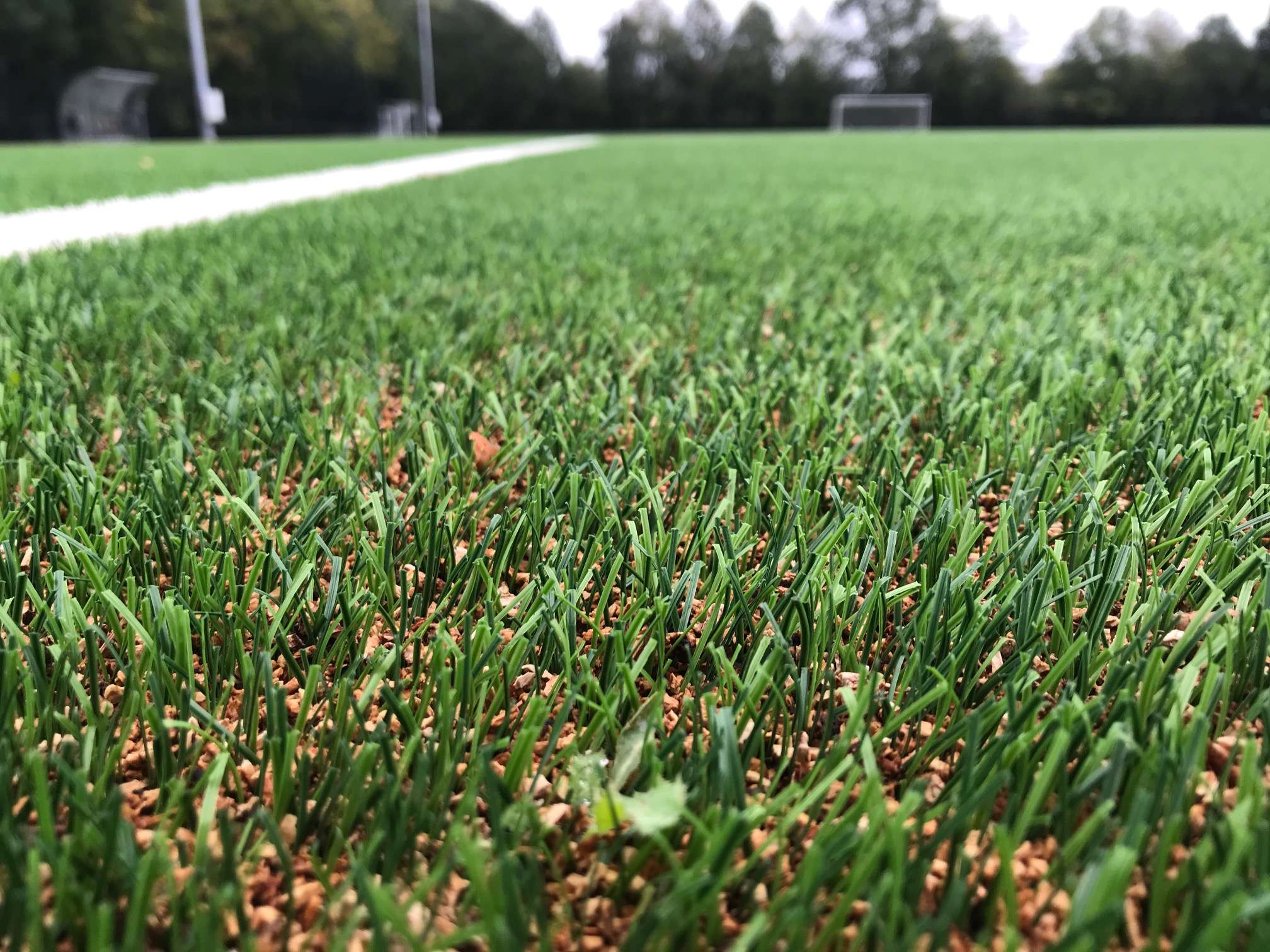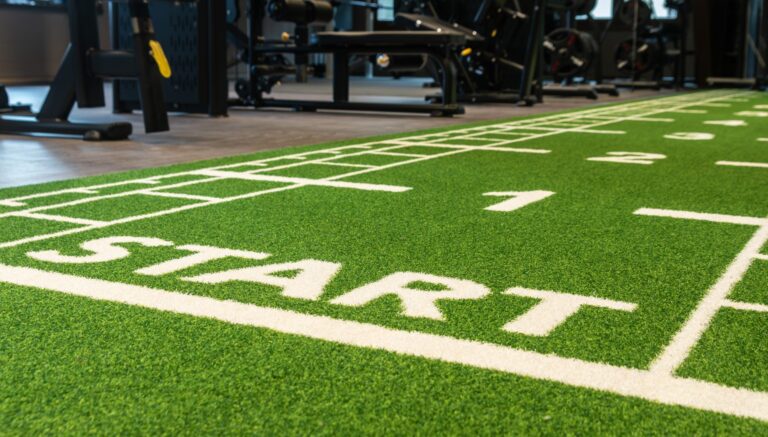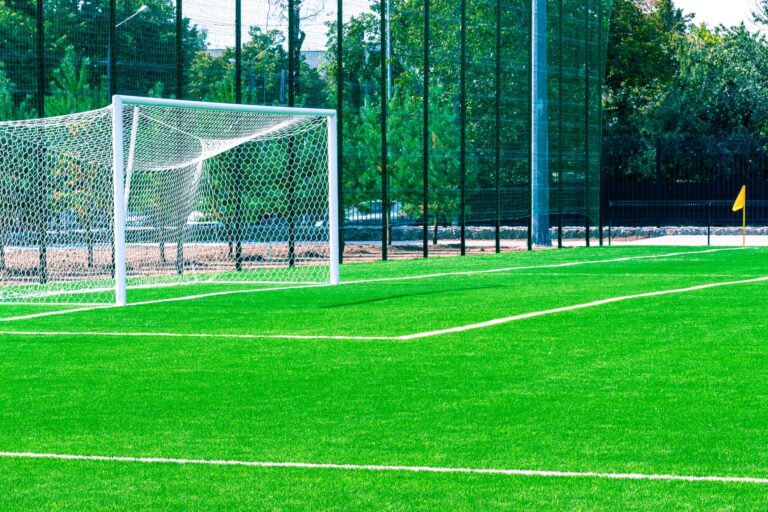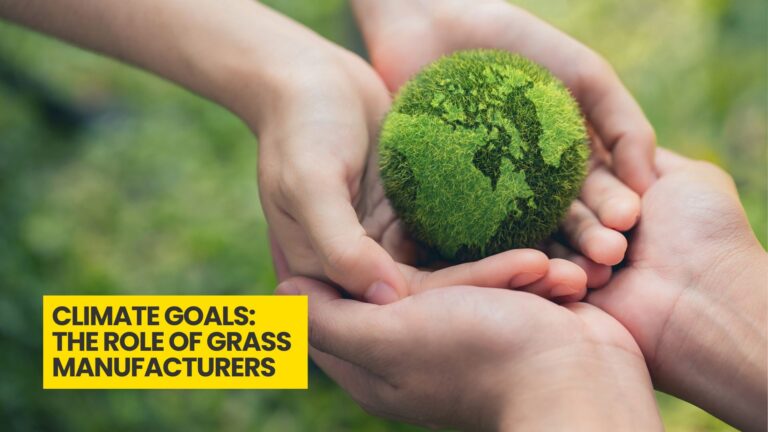BioFill for sports synthetic turf systems
In recent years, the proliferation of artificial turf fields has transformed the sporting landscape, offering a cost-effective and flexible solution for clubs, schools and municipalities. However, concerns over the environmental impact and user safety of traditional infill materials have sparked a revolution in the industry.
This shift towards sustainability in the sports market has led to a move away from traditional infill materials such as styrene butadiene rubber (SBR) and virgin rubber granules. Environmental awareness, coupled with legislative pressure, has paved the way for innovative solutions in synthetic turf production. At Yardex, we are at the forefront of this transformation and have introduced cork infill BioFill for our sports systems.
The Farewell to Traditional Infills
With growing concerns about microplastics in the environment and strict regulations from the European Chemicals Agency (ECHA), the days of SBR and rubber granules are coming to an end. The search for sustainable alternatives has led us to explore new horizons, and cork infills are at the forefront of this transformative journey.
A Natural Solution for Synthetic Turf
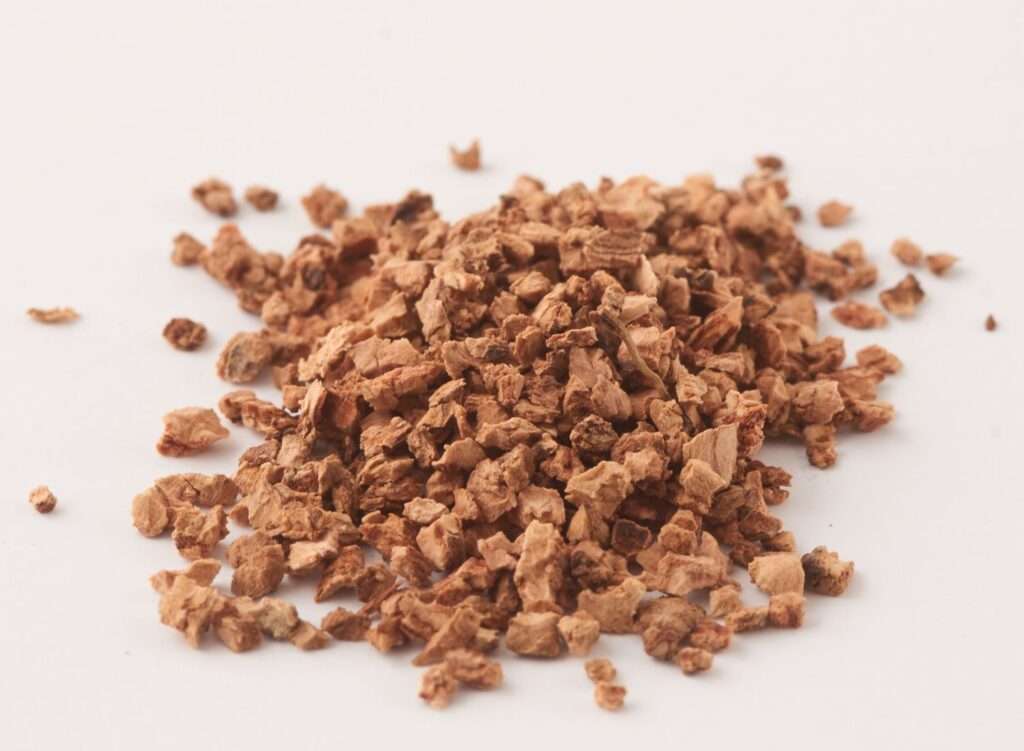
What sets cork infills apart from others is their inherent environmental friendliness and performance characteristics. Our BioFill cork granules are derived from high-quality cork oak bark and are characterized by high durability, moisture repellent properties and subsequent resistance to microbial and fungal attacks. This special formulation, developed in collaboration with leading cork suppliers and embodies the perfect blend of nature and innovation.
CO2 Negative
Given the cork oak must work hard to regenerate the harvested layers, it requires a significant amount of carbon from the surrounding environment, meaning cork results in having a positive impact on the world’s global warming issues. In return, the oak cork contributes oxygen back to the environment.
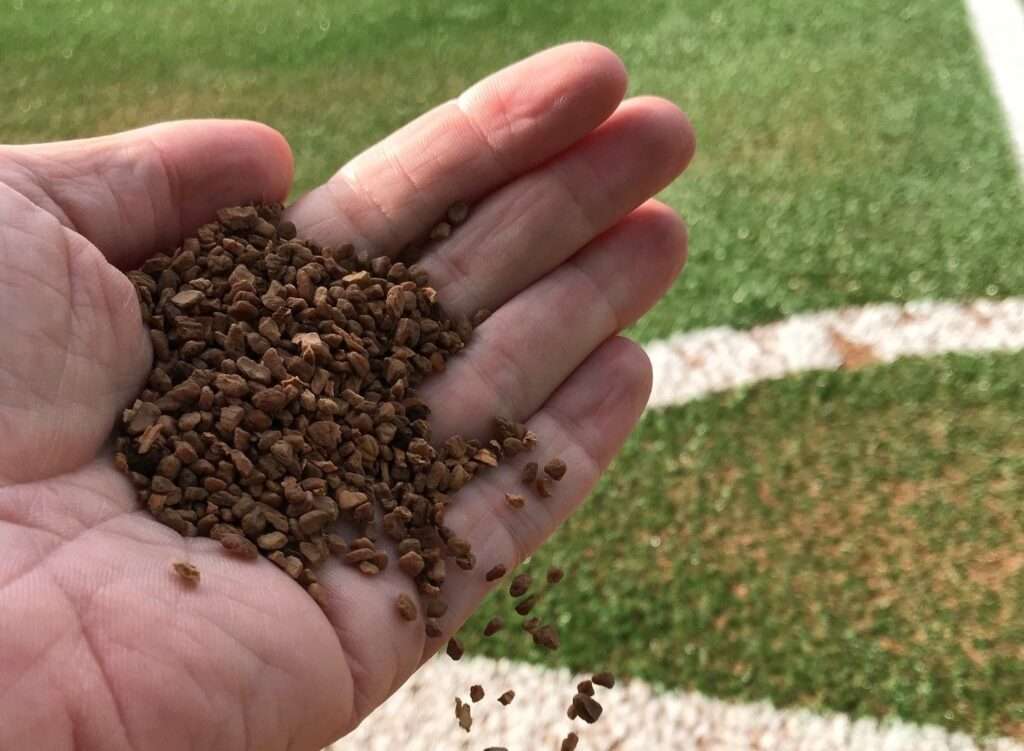
Designed by nature
Cork is unique among organic infill solutions in that it is designed by nature to protect and endure. Ancient artifacts in museums today demonstrate cork’s resilience to the environment Starting in contrast to seed and wood based products designed by nature to decay for one reason or another. Cork cannot absorb moisture, meaning it is impervious to microbial attack, the very reason why it has been used for many years to close your bottle of wine off from the harmful elements evident in the outside world.
Addressing Common Myths
When it comes to artificial turf, the discourse surrounding alternative infill materials is often clouded by misinformation. We understand the concerns and questions that can arise for our customers. Allow us to address some of the most common concerns:
- Is cork infill safe for players, especially children?
Absolutely! Our cork infill is free from harmful chemicals, non-irritating to the skin, and certified to meet the strictest safety standards.
- What about the durability of cork infill compared to traditional materials?
Cork granules have strong wear resistance and recovery, equalling many traditional infill systems.
- What about the availability of cork as a resource?
Cork is a renewable resource that is available in sufficient quantities to meet the growing demand. Our partnerships ensure a constant and sustainable source of high-quality cork granules.
- Does cork float?
A well-built pitch, regardless of the infill material, should have proper drainage to prevent flooding. Cork infill, as part of a quality artificial turf system, provides excellent drainage and is resistant to degradation.
A Pioneer for Sustainable Sports Fields
The benefits of cork infill extend beyond environmental protection. Our BioFill cork granules offer a multitude of advantages:
- Natural material: With the EU set to ban plastic and rubber infills, cork becomes a certified, 100% natural alternative that embodies environmental responsibility.
- Natural aesthetics: Synthetic turf with cork infill resembles real grass and enhances the visual appeal of sports fields.
- Lack of odour: Cork is odourless, even in hot and humid or indoor conditions
- Safety and comfort: The cork granules provide excellent cushioning, grip, and skin abrasion; reducing the risk of injury and providing a safe playing environment for athletes of all ages.
- Low maintenance: Playing fields with cork infill require minimal maintenance, save water and resources, and are also resistant to microbial attack.
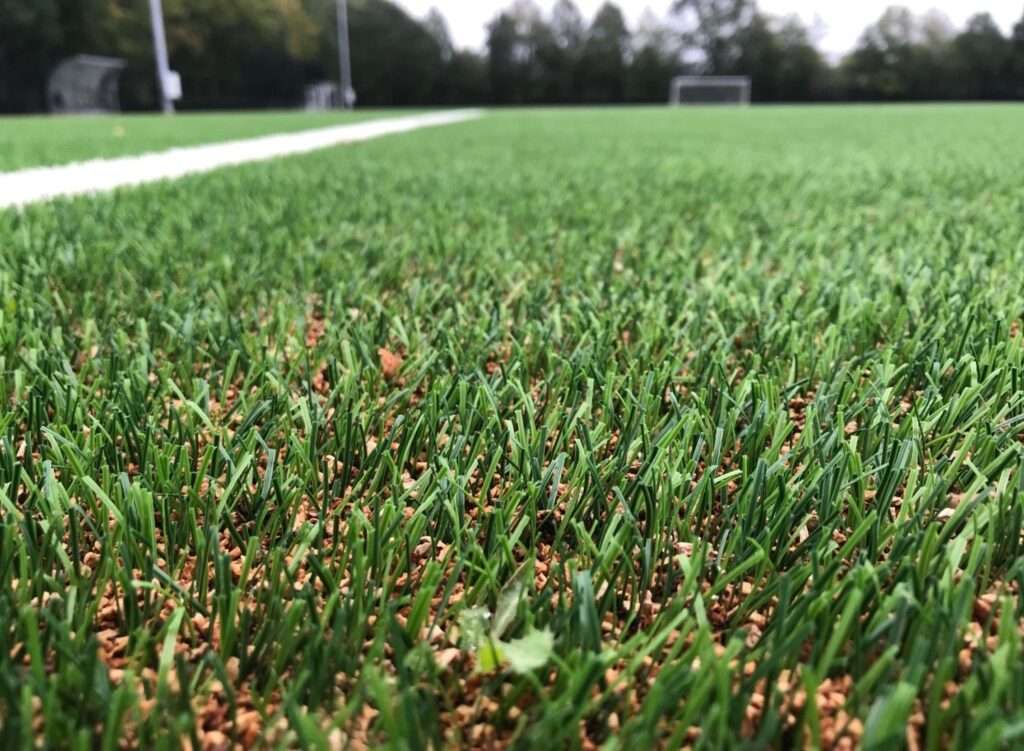
How to Identify First-Class Cork?
When it comes to choosing premium cork for your artificial grass, distinguishing between quality and inferior alternatives is essential. It depends on two key factors: density and granule size. Optimal cork usually has a density of around 130 kg/m³ and a granule size of 1-2 mm, which ensures minimal dust generation. The production process, including the grinding and boiling methods, also plays a decisive role.
Solutions for Sports Systems
At Yardex we have designed 45 and 50mm sports systems equipped with a robust shock absorbing layer. This strategic design significantly reduces the need for additional shock-absorbing infill layers and paves the way for building more fields.
In summary, cork infill offers a sustainable, safe, and high-performance solution for the sports fields of the future. Join the green revolution and experience the magic of cork infill for yourself!

